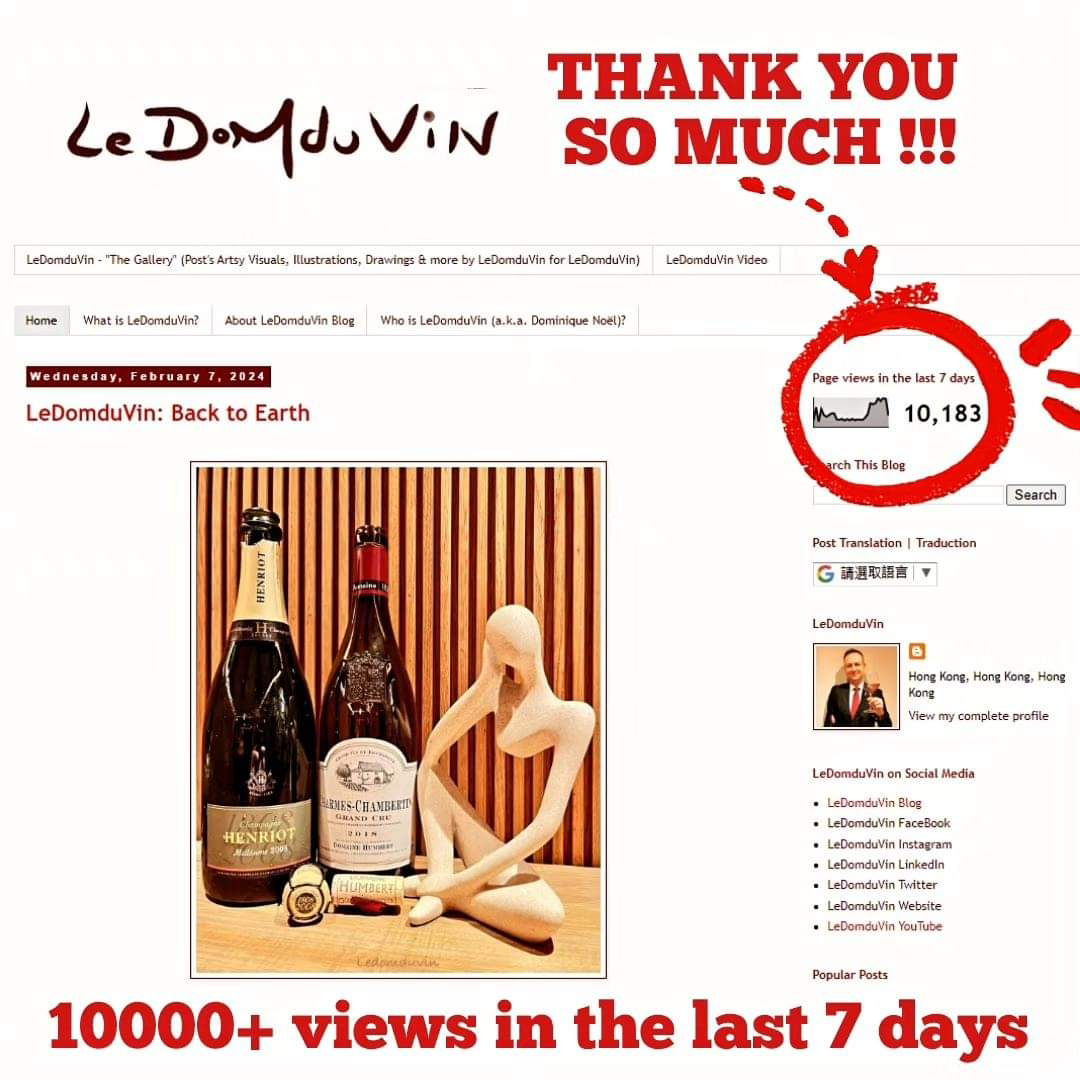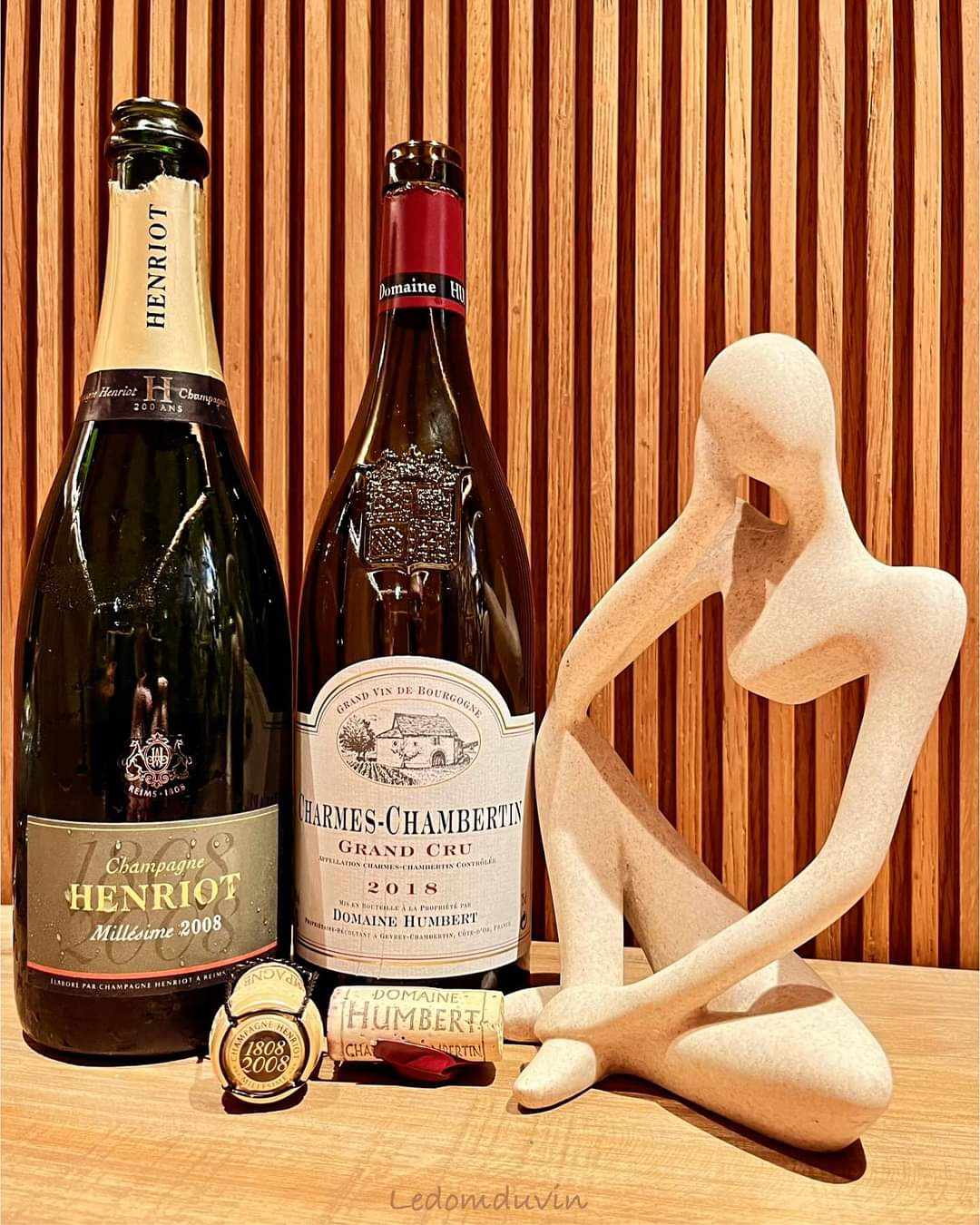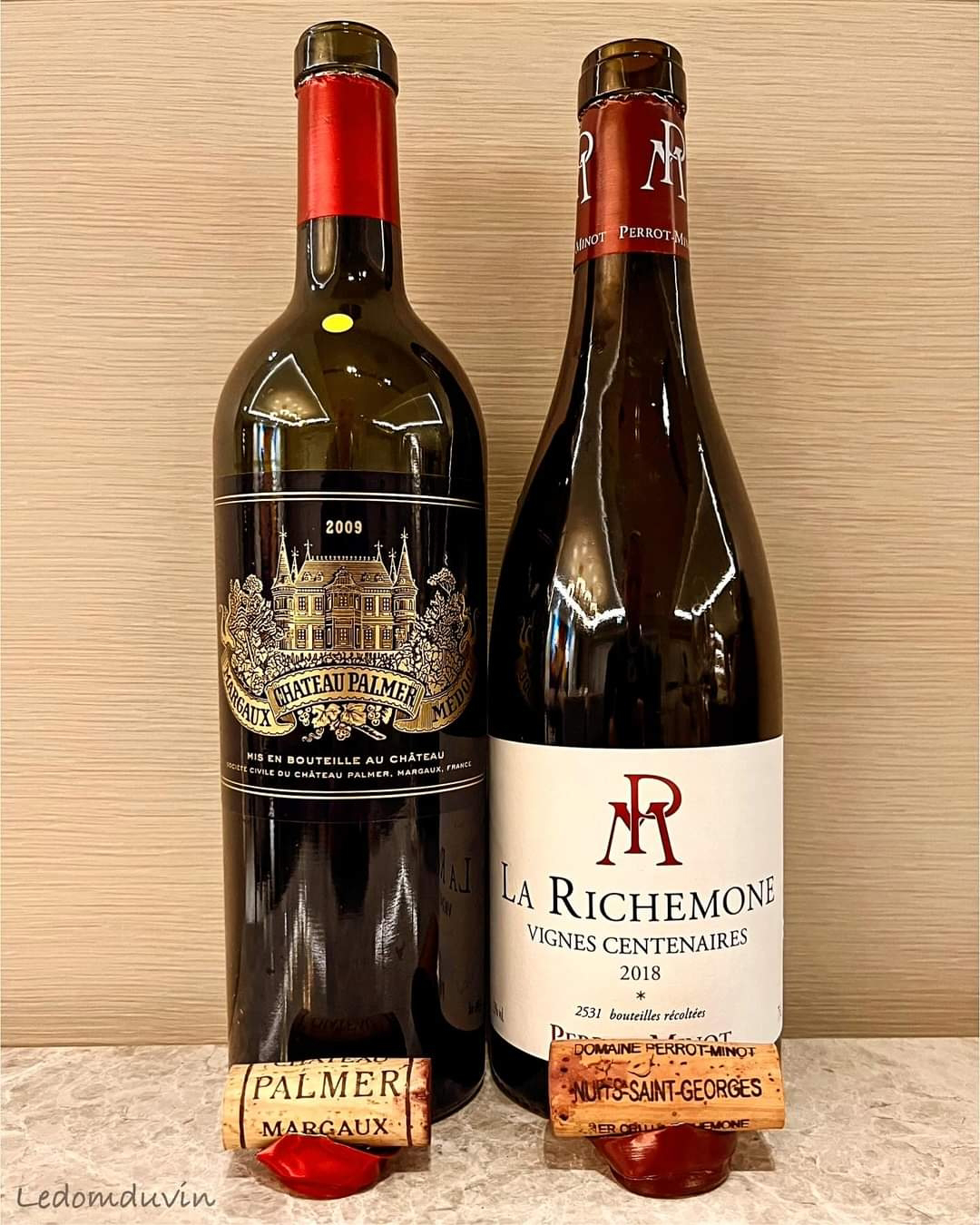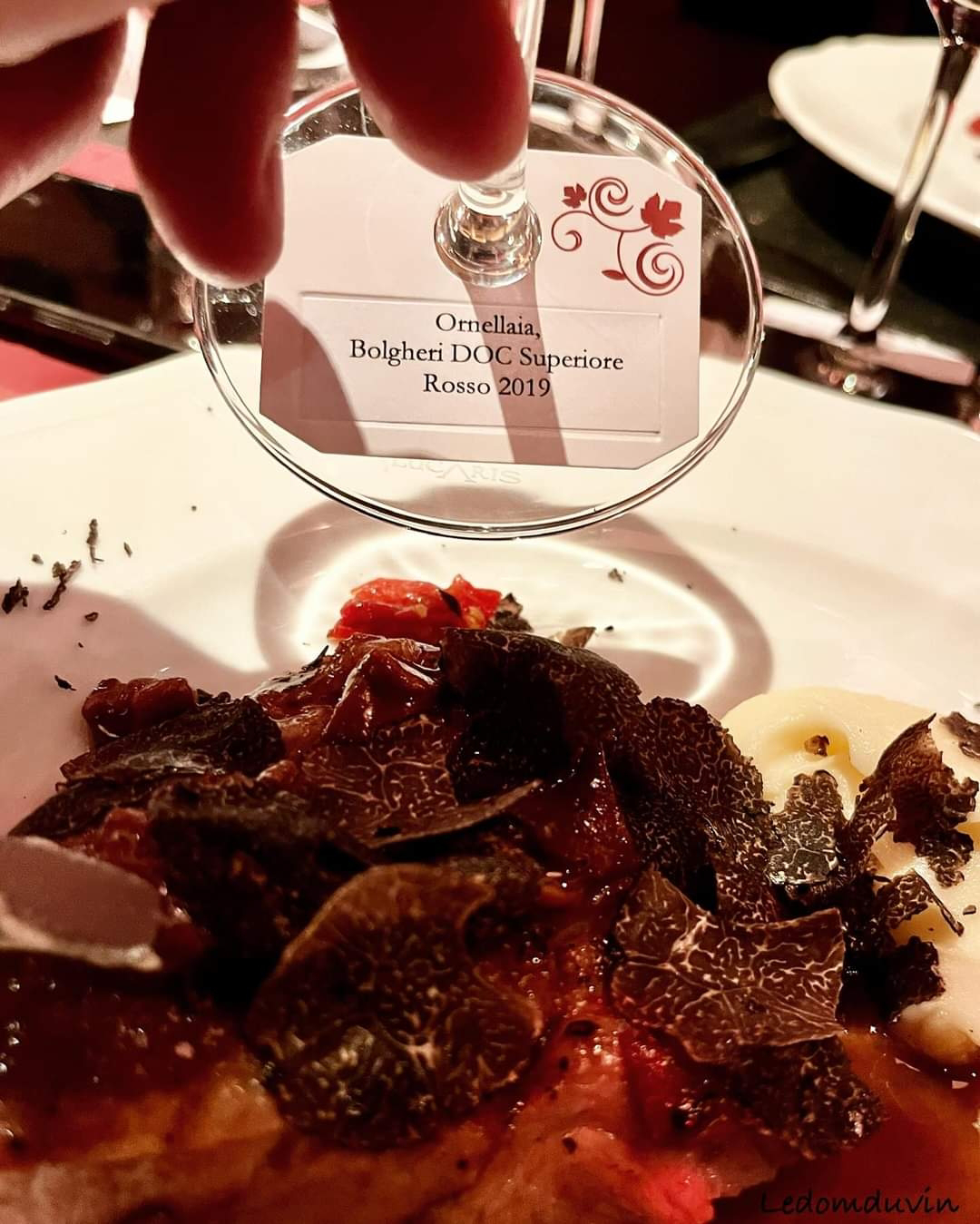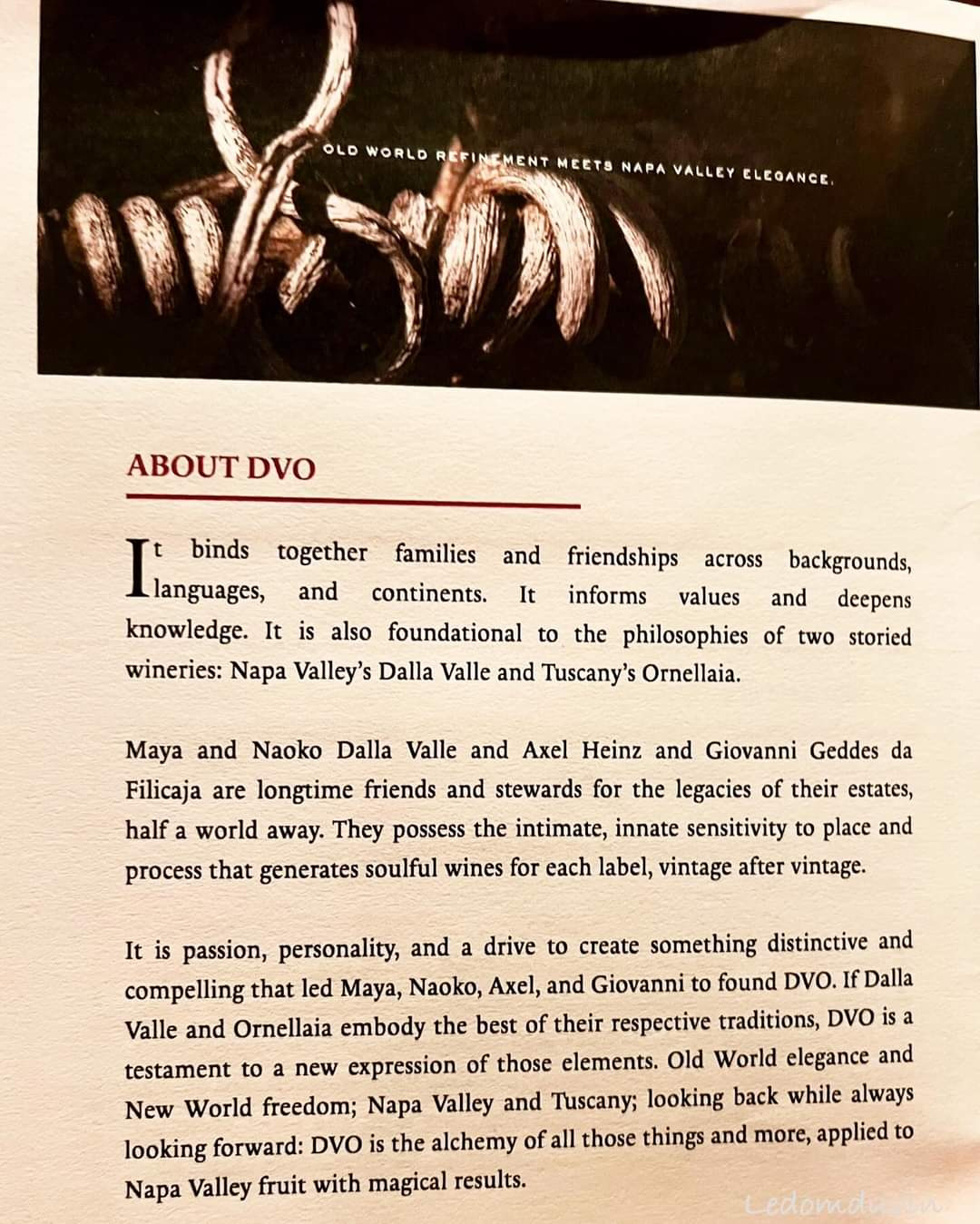Global wine consumption has decreased for over a decade and seems to have declined even further these past few years.
Although sales climbed from 2020 to early 2022 due to the pandemic restrictions and more people staying at home for longer periods of time, the post-COVID era has had trouble returning to the level of consumption pre-COVID.
It might not seem much over 15 years. Yet, the impact was (and still is) significant enough to worry all the players involved, from the vineyard's workers, winemakers, wineries, and cooperatives to the wholesalers, négociants, distributors, retailers, salesmen, hotels, restaurants, bars, bistros, and everything in between.
Interestingly, global wine consumption remained quite consistent between 2008 and 2017, only oscillating between 244 and 243 million hectoliters during these 8 years (with one exception at 240 in 2014).
Therefore, the most significant decrease of the past 15 reported years (2007-2022) occurred within the last five years, between 2017 and 2022, from 247 million hectoliters in 2017 to 232 million in 2022, representing a 6.5% decrease in these five years only. This is not worrisome anymore; this is scary.
When browsing the internet to do more research and better understand why, I realized there is a lot of contradictory information on the subject. This triggered my curiosity and inspired me to write this post to further develop some of the main reasons and factors from my perspective.
Lack of Money
Undoubtedly, the first reason that comes to mind is the lack of money (as I tried to depict it in my little illustration heading this post).
Living costs have risen in most countries worldwide in recent years. Inflation, wars, climate change, corrupt politics, higher taxes, inadequate resource management, and other factors have all contributed to this.
To which we can also add the consequences and disadvantages of globalization (e.g., increased competition, exploitation of labor and resources, imbalanced trade, domestic job loss, elevation of domestic prices, taxation, tariffs, etc...) and the consequences of the recent ongoing wars, such as those in Russia/Ukraine and Israel/Palestine.
Civil and political unrest and other economic, financial, societal, and geopolitical issues in some countries (including the Western world) have also contributed to this problem. Unavoidably, inflation resulted. The cost of food, utilities, and energy (electricity, gas, oil, coal, etc...) increased, and many are struggling to make ends meet (worse than before for those already struggling).
Consequently, Wine (and alcohol in general) gradually became a luxury many can no longer afford, even at a low price point. No money means people drinking less and cheaper or even cutting alcohol altogether.
After "lack of money", another critical factor to consider is how a global event affects people, their habits, and their perspectives on life. Our experiences, beliefs, and values shape our subjective realities and suggest that life has no objective reality. However, the recent pandemic has produced reactions and changes that are "common" to most people, revealing some universal truths about our habits, lives, and even our world.
COVID has had a significant psychological, behavioral, and, more importantly, financial impact on people and businesses.
In Hong Kong (where I live), between the beginning of the pandemic in early 2020 and what we could consider its end in February 2023, many companies delocalized, underwent significant reorganization and restructuring, reduced their staff, cut salaries, and/or went bankrupt, especially within the F&B industry, leading to job loss and unemployment.
Many expats left HK to return home or to other countries with more potential prospects. Although some are now coming back, the economy is still fragile. HK greatly suffered from these three years of isolation from the rest of the world, during which relying solely on the local economy due to the lack of mainlanders and tourists took a toll on most people and businesses.
Despite hopes of an economic rebound in the post-COVID era, 2023 was a terrible year for businesses in general and, more particularly, for the F&B industry in HK, significantly impacting wine sales and consumption in restaurants, brasseries, hotels, etc.
In fact, although many countries have recovered, and some are now back on track with figures similar to or even exceeding those of pre-COVID years, Hong Kong is still secluded and has not recovered yet. HK is still suffering the economic and financial consequences of COVID-19 and these 3 years of isolation.
Additionally, COVID awakened consciousness and self-importance, changing people's societal behavior and work ethics. Some became less willing to take low-paid positions and ungrateful jobs that require hard work, working long or awkward hours, early morning, late night, or weekends (e.g., waiter, cook, chef, nurse, cleaners, helpers, janitor, sanitation worker, etc..).
Despite a surge in wine and alcohol sales and consumption during the mid-2020 to late 2022 period due to COVID-related home confinement, restrictions, and people spending more time at and/or working from home, there has been a downside.
This situation, known as "The Great Lockdown," resulted in a global economic recession, job loss, and unemployment. Consequently, more people had to reprioritize their needs and spending, and gradually, wine was not at the top or even part of their list anymore.
In addition, Hong Kong is suffering from the rapid expansion of its neighboring city. Shenzhen has experienced tremendous growth in the last five years and has become a modern city and a financial and technological hub, attracting many young talents and professionals. Shenzhen is also cheaper than Hong Kong (at the moment) and, therefore, has become a more attractive destination than HK, which has difficulty reclaiming its pre-COVID aura as the "Pearl of the Orient" and "Asia's World City."
In short, over the past 5 years, the increase in living costs due to the pandemic, the wars, and other global economic, societal, political, and financial factors, combined with an attitude and behavioral change toward working and work ethics, have led to a shortage of employees in various industries such as F&B, retail, agriculture, construction, hospital, and other physical or manual labor jobs. This has resulted in more people being unemployed or earning lower salaries, leading to financial constraints that have forced these people to reassess their priorities and spending habits, thus declining wine sales.
Lack of interest
We can confidently say that "lack of money" and "COVID" have significantly impacted people's habits and consumption, including wine, and played a significant role in declining wine sales in recent years. However, another crucial factor is Social Media and its impact on the image of wine and alcohol in general, creating a "lack of interest." As my teenage kids say, "Drinking has become cringe!"
Social Media (and streaming services) increased time spent on screens and, hand-in-hand with COVID, also contributed to awakened consciousness and self-importance, changing people's societal behavior and work ethics, especially those between 20 and 40 years old (part Millenials and Gen-Z).
In today's fast-paced world, we often encounter social media influencers, mostly teenagers or young adults. These influencers make easy money by creating and sharing videos or reels that depict a false or fantasized image of our society and how life should be lived. Unfortunately, such content doesn't encourage people to pursue hard jobs and can lead to unrealistic expectations.
Unlike the rappers and other artists who influenced the '90s, 2000s, and early 2010s by promoting heavy spirits such as cognac and whiskies (among others) and even drinking wine, in their lyrics and videos, most influencers do not drink or promote alcohol nowadays.
On the contrary, it seems that they promote a healthy life, and although there will always be some people who smoke and drink at an early age at school, most young people (15-25) do not see alcohol or smoking as a "cool" thing to do anymore. It is probably for the best, even if it has played a role in declining wine sales.
It is a fact that, in general, Millennials and Gen Z have a lack of or low interest in alcohol, mainly for health, generational and behavioral reasons, I believe.
For example, my son, who is 17, does not drink or smoke. This is great! And I'm pleased about it. Yet, it is not for the lack of making him try some wine occasionally (e.g., Christmas or birthday). It would have been difficult not to while having a father who is a Sommelier and a Wine Buyer, working with wine and alcoholic beverages for the past 33 years.
As I always say, I prefer them to be acquainted with alcohol occasionally, slowly, and gradually during their teenage years (without forcing them or encouraging them to do so) rather than having them wait to reach the age of 18 years old or even 21 years old in the US, and binge and do stupid things because of it.
Even though it's not something to be proud of, I'm glad my children aren't following my example. I was born in the early 70s and grew up in Bordeaux, France, as a teenager in the 80s. Back then, drinking and smoking were quite common, and my friends and I started at a much younger age.
Nowadays, millennials and Gen Z tend to consume less alcohol compared to preceding generations, such as Boomers and GenX, when they were the same age. Is it because they saw their parents drinking with most meals (an old habit in most Western countries) and are not interested in doing the same? Or, could it also be the result of parents being abusive with their kids due to alcohol, demonstrating alcohol is not a good thing (a recurring problem in most countries, unfortunately, often leading to domestic violence and other problems)? Probably a combination of both.
However, those who consume alcohol prefer white and/or rosé wines rather than reds and/or are exploring other beverage categories like RTD (ready-to-drink) premixed drinks, cocktails, and craft beer. These convenient options allow them to enjoy alcoholic beverages and premixed and/or pre-made cocktails at home or on the go.
Consequently, wine sales have become increasingly reliant on older drinkers from the previous generations, Boomers and GenX, who have habits of drinking wine as an aperitif and during meals (lunch and/or dinner). Yet, these generations, especially the boomers, are aging fast, and health consciousness prevails over wine consumption, leading to declining wine sales for this population segment. Health is also a concern for the new generations, as it influences their behaviors and consumption habits.
Health Concerns
For over two decades, alarming scientific reports showing the increasing air, water, and soil pollution due to chemical, industrial, and plastic products (among other things) have made health a primary concern in everyone's mind.
Men's activities, including overproduction and overconsumption, generated this ever-growing pollution. The consequences can be observed everywhere in our daily lives. Just look at the amount of trash and plastics each of us generates daily, for example.
Despite being a recurring topic since the 1990s (more like since the 1970s), we have only found minor solutions to tackle this pollution problem, let alone the climate change situation, which is partly caused by pollution. The problem is that the efforts of a minority to make a change are not enough compared to the majority of people and the government's lack of concern and action to address these issues.
Like for Tabaco a few decades ago (and still ever since), anti-alcohol campaigns at doctor's offices, hospitals, and even taught at schools have emerged and mushroomed everywhere in the past 10 years, raising awareness about the negative aspects and consequences of drinking alcohol, even with moderation. It explains why Millenials and GenZ kids are not as big consumers as the preceding generations.
As a Sommelier and wine buyer, I have seen wine sales decline and wine consumption decrease in relation to aging Boomers and interested Millenials and Gen Z. Although my grandparents were still drinking a little wine nearly every day until they died, my parents, who are now in their early 70s, are not drinkers. They appreciate wine occasionally and in small quantities, but it is not a necessity for them.
Although my teenage kids are telling me that some of their friends are vaping, smoking, and drinking, the majority of them are not. Both of my kids don't smoke or drink. Yet, they are constantly invited to birthdays and parties where they could have the possibility to do so, but they don't. They have tasted some wine and beer and, therefore, know about alcohol, but they are not interested.
When I ask them why, their first reason is that they do not like it and don't appreciate the taste of it. Their second reason is that they want to stay healthy and in control of their body and mind. It may change with time (or not). Time will tell.
This health concern among the older and younger generations significantly contributed to declining wine sales in recent years. Even the people of my generation (45-65) are slowly reducing their wine consumption (and alcohol in general).
This is a vast subject, and I could write more and further develop this already lengthy post. Yet, I will just conclude by resuming the above: lack of money, change of priorities, lack of interest, change of habits in a post-COVID era, financial issues, and growing health concerns in an ever-polluted world (among other things) all contribute to the diminishing of wine sales and consumption (alcohol in general) to favor a life where humans must prioritize their needs and health first.
These were my two cents on why wine sales have declined in recent years and will probably continue to do so (for the reasons cited above) if we continue to walk the path we have been on these last few decades.
Cheers! Santé!
Dom
@ledomduvin #ledomduvin #wine #vin #vino #wein #lesillustrationsadom #lescreationsadom #sales #winesales #mytwocents #opinion #view #perspective #sommelier #winebuyer #world #wineworld #wineindustry
Sources:
Unless stated otherwise, all rights reserved ©LeDomduVin 2024, on all the contents above including, but not limited to, photos, pictures, drawings, illustrations, collages, visuals, maps, memes, posts, texts, writings, quotes, notes, tasting notes, descriptions, wine descriptions, definitions, recipes, graphs, tables, and even music and video (when and where applicable).

%20by%20@Ledomduvin%202024.png)






